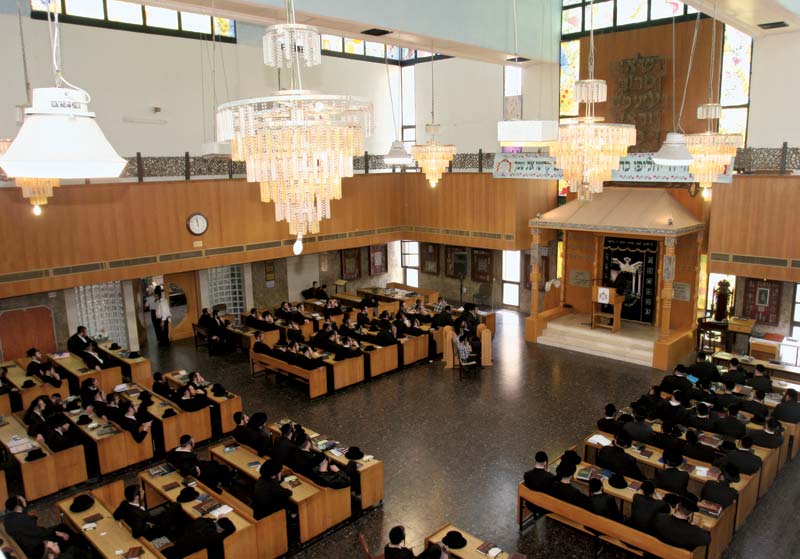
The Mishnah Berurah (Orach Chaim 150:2) brings the Magen Avrohom who says that if there is enough room in the Shul for everyone it is prohibited to leave to start another minyan. The reason for this halacha is explained by the Shaar Hatziyun. First of all because of B’Rov Am Hadras Melech – a mitzvah is more beautified when many people are doing it together. Secondly, by splitting up it will cause a loss of income to the Bais Haknesses and the different Tzedakah projects associated with it. It wall also effect the learning of the tzibbur.
The Radvaz however says that this is all true when there is unity amongst everyone. However if there is division amongst them, then it is better for each group to daven themselves. He says that one should not be mistaken that he is of the opinion that breaking up is good. Of course the best thing is to be united, however if that is impossible to happen, then they should split up.
The Radvaz does end off by saying that when choosing a Bais Haknesses in which to daven the decision should be based on where he feels he will be the most uplifted and connected to Hashem, even though there will be a larger minyan B’rov Am in the main Bais Haknesses. This is the basic minhag in Klal Yisroel where different groups establish their own minyanim according to their minhagim even though it is at the expense of B’rov Am.
When there is not enough room in the Bais Haknesses and a group leaves to start another one, everything must be divided. The Mishna Berurah at the end of Siman 154 says that anything that was donated by an individual may be taken with him or by those who inherited him to the new Bais Haknesses as long as people still associate him with that object. If people no longer associate him with that object he does not have the right to take it along even though everyone knows he donated it.

Anything that was donated from money belonging to the Bais Haknesses itself should be divided amongst both places according to the number of people in each Bais Haknesses. Some say only men thirteen and older are included, others say it includes even women and children. If it is impossible to divide then they should switch off using it.
The B’er Yitzchok says that this halacha only applies to a tzibbur that left because there was not enough room in the Bais Haknesses as mentioned earlier. However if they left because of machlokes even if it was permissible for them to do so like the Radvaz says, still they cannot take anything with them. They have no right to break their original partnership. Since most people remained in the old Bais Haknesses, everything stays there. Some are of the opinion that even if most people left they still cannot take anything with them.
The Chasam Sofer says forming a new minyan because they feel they will daven better there should only be done if it is purely for the sake of Hashem. If they are really able to daven with the general tzibbur and refrain from doing so for reasons of honor and feelings about having their own minyan, they are separating themselves from the tzibbur and are degrading the importance of B’rov Am. They are also causing a separation in the kehilla, causing others to be upset at them, and at times even causing machlokes.
It is an aveirah for a tzibbur to leave a Bais Haknesses if that will cause it to close down due to the lack of income from the membership and other pledges. The Teshuvos V’hanhagos says that if someone convinces other people to join a different Bais Haknesses thereby causing a financial loss to that Bais Haknesses, M’Derabanan he has transgressed the issur of stealing. He also says that even when it is necessary for one to leave his Bais Haknesses because of the nusach and other acceptable reasons, he should still try to pay membership to the Bais Haknesses that he left, so they should not suffer a financial loss because of him.1
Prepared by R’ Avrohom Yehoshua Ziskind
________________________
1Sources: Mishnah Berura, Dirshu, Piskei Teshuvos